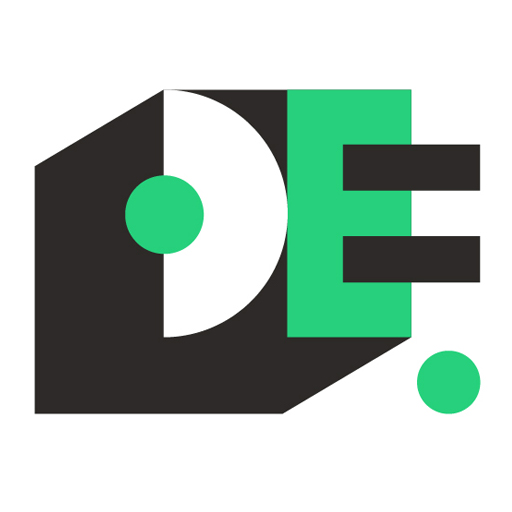This year’s Catalyst Honours, Canada’s premier gender equity and DEI conference, brought together over 650 HR, DEI, and business leaders at Toronto’s Fairmont Royal York and online on 7 Ocober 2024. Featuring over six hours of programming and more than 130 companies in attendance, the event inspired participants and provided tools to foster more inclusive workplaces.
This year’s theme, the Catalyst Effect, was a powerful call to action. It encouraged attendees to collectively commit to DEI, creating a force so strong it sparks widespread change. In a year where DEI efforts have faced global pushback, this framing was particularly urgent. As Julie Cafley, Executive Director of Catalyst Canada, emphasized during her remarks, “We need to focus on fixing workplace systems, not fixing women.”
Through personal stories and strategies, the event’s 50+ expert speakers provided a key message: DEI is not only about fairness but about unlocking the full potential of a diverse workforce. In particular, this year’s nine Catalyst Honours Champions emphasized the need for sustained action in DEI and celebrating small wins, noting that progress takes time.
MC Angie Seth, Senior Reporter/Host at CBC, highlighted some of the positive changes, sharing that for the first time in history, a third of the top corporate board positions in Canada are held by women. While we have made great strides, she said, there is still much to be done to reach true gender equity across sectors.
During the session “Race and the Future of Work: Advancing Workforce Equity in a New World,” Abhishek Sarathy, AVP of Diversity, Inclusion & Belonging at Canadian Tire, stressed, “DEI is not a cost—it’s a gain.”
Addressing gender and racial equity is essential for creating truly meritocratic, inclusive workplaces that maximize economic and productivity benefits. The message was clear: organizations need to be loud and proud about their DEI commitments.
DEI is about creating safe workplaces mentally, physically, and emotionally
During a lightning talk on “The Invisible Load: Women, Aging, and the Caregiving Conundrum,” Moira Klein-Swormink, Principal, Branch Development, Edward Jones Canada shared her personal experiences of juggling career and caregiving responsibilities. She emphasized that organizations must foster work-life balance and build cultures that normalize caregiving conversations.
Similarly, the panelists on the session “Health Equity: An Intersectional Approach to Wellbeing and Work,” discussed how workplace health equity involves understanding and addressing diverse employee needs—from mental health and perimenopause to trans healthcare and neurodiversity.
Harriet Ekperigin, Vice President of Mental Health at GreenShield, urged that “Organizations should engage with employees, ask them what health and well-being mean to them, and make necessary adjustments to benefits and policies to reflect their needs.”
DEI efforts must create spaces where employees feel safe to bring their whole selves to work.
The key to Indigenous reconciliation: commitment and accountability
The crucial intersection of Indigenous reconciliation and workplace inclusion cannot be ignored when addressing the ongoing challenges and opportunities in creating equitable and respectful work environments for Indigenous peoples.
“A Call to Action: Indigenous Reconciliation and Inclusion in the Workplace” stressed the urgency of Call to Action 92 from the Truth and Reconciliation Commission about corporate responsibility. Business leaders must take a role in driving this change, and ongoing commitment is essential.
“Reconciliation belongs to everyone—with everyone understanding their shared accountability,” said Myan Marcen-Gaudaur, Director, Social Impact & Reconciliation, Scotiabank.
The time is now to confront uncomfortable truths about colonialism, and hiring managers must push beyond their traditional networks to find talent. Organizations need to integrate Indigenous inclusion into their core strategies, recognizing the unique historical and socioeconomic barriers Indigenous communities face.
As Richel Davies, Director, Inclusion of Indigenous Peoples, Scotiabank noted, “Indigenous culture and innovation benefits us all.”
We need to look across sectors for new solutions
DEI leaders can learn important lessons by looking to industries other than their own.
Both the afternoon keynote “Leveling the Playing Field: Canadian Women’s Sports and the Pursuit of Equity” and the Deloitte-sponsored breakout session “Peak Performance Through Equity: Reimagining Workplace Excellence” looked to the world of elite and professional sports for insights.
“People in sports are looking for any sort of competitive advantage. And what became very, very clear is when you have women and people with diverse mindsets impacting your decision-making, that elevated your performance,” said keynote speaker Teresa Resch, President, WNBA Toronto.
Additionally, in STEM industries traditionally dominated by men, Delaney Krieger, RSE Interior Systems Mechanic & Career Support Specialist from Build a Dream shared her experiences of navigating an environment not designed for her during the panel “Rising Innovators: Women Leading the Charge in STEM, Tech, and Trades.”
Organizations across industries must look at diversity as an asset that boosts innovation, performance, and workplace culture.
When it comes to AI, “Use it, experiment with it, but always verify it”
The final CEO Session “Leadership at the Intersection of AI and DEI” discussed how AI can democratize opportunities, but only if governed responsibly.
Pamela Pelletier, Country Leader at Dell Technologies, emphasized the importance of curating data to reflect organizational values, while Kathleen Taylor, Chair of Element Fleet Management, advised, “Use AI, experiment with it, but always verify it.”
The biggest lesson? AI has the potential to be a powerful equalizer, but organizations must ensure that their AI models don’t perpetuate bias.
Want to know about next year’s Catalyst Honours? Sign up now and we’ll email you when registration goes live!



